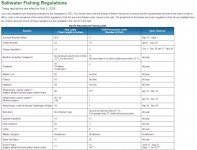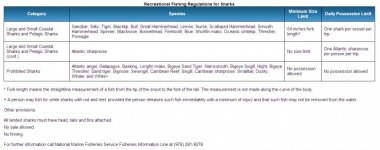- Location
- Baiting Hollow Long Island NY
Georgel, sorry but I have to disagree with just about everything in your post.
We as hobbiests would not really be considered conservationists. Weather we remove fish from the tropics or wait until they hitch a ride here on the Gulf Stream or collect local specimins, we are still removing amimals from the sea. No matter how long it lives in our tanks, we are still removing a potential breeding fish and it will never again spawn to replenish it's stocks in the sea.
For every fish you buy, dozens die in traps and in transit and many more die in wholesalers and retailer's tanks.
As a matter of fact, If you collect a fish yourself, you will be killing a lot less fish than if you bought it.
If you have been to some of the places where they collect these fish you will see that fish are practically free. You can have them for a few cents. It is the shipping, packaging and the middleman that costs. The last time I was in St. Lucia they were selling lookdowns full grown for 50 cents a pound. Thats about 10 cents a fish.
They use them for food.
Concerning how much it costs us to house them, that is up to the person himself. I have a boat which costs me many times more in one year than this hobby cost me in 30 years.
Also I eat fish every day. If I eat them or keep them, it is the same to the fish. They are still being removed from the sea.
I am sure the tropicals are used as food for native species.
Let them eat cake. :bablefish
We as hobbiests would not really be considered conservationists. Weather we remove fish from the tropics or wait until they hitch a ride here on the Gulf Stream or collect local specimins, we are still removing amimals from the sea. No matter how long it lives in our tanks, we are still removing a potential breeding fish and it will never again spawn to replenish it's stocks in the sea.
For every fish you buy, dozens die in traps and in transit and many more die in wholesalers and retailer's tanks.
As a matter of fact, If you collect a fish yourself, you will be killing a lot less fish than if you bought it.
If you have been to some of the places where they collect these fish you will see that fish are practically free. You can have them for a few cents. It is the shipping, packaging and the middleman that costs. The last time I was in St. Lucia they were selling lookdowns full grown for 50 cents a pound. Thats about 10 cents a fish.
They use them for food.
Concerning how much it costs us to house them, that is up to the person himself. I have a boat which costs me many times more in one year than this hobby cost me in 30 years.
Also I eat fish every day. If I eat them or keep them, it is the same to the fish. They are still being removed from the sea.
I am sure the tropicals are used as food for native species.
Let them eat cake. :bablefish









